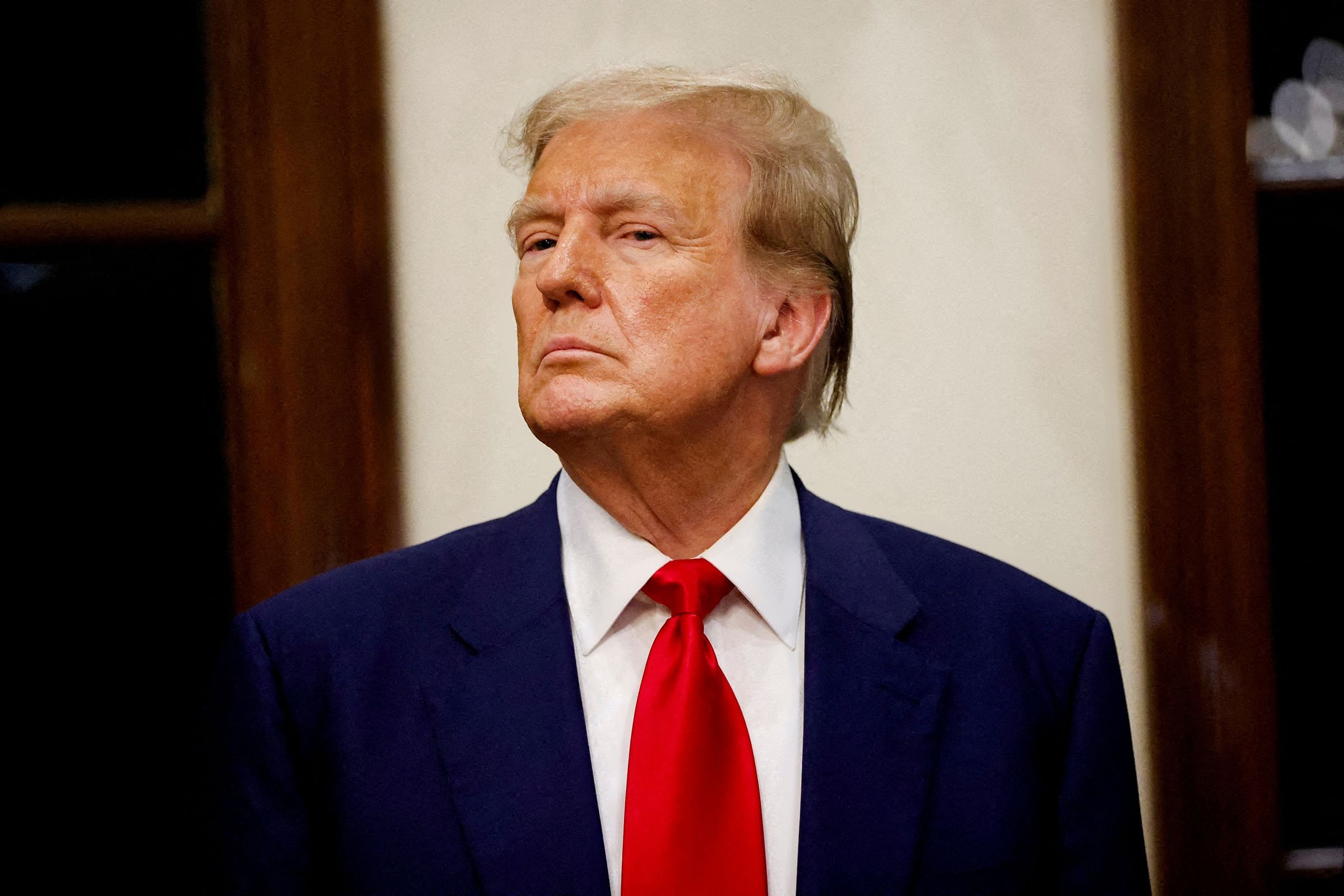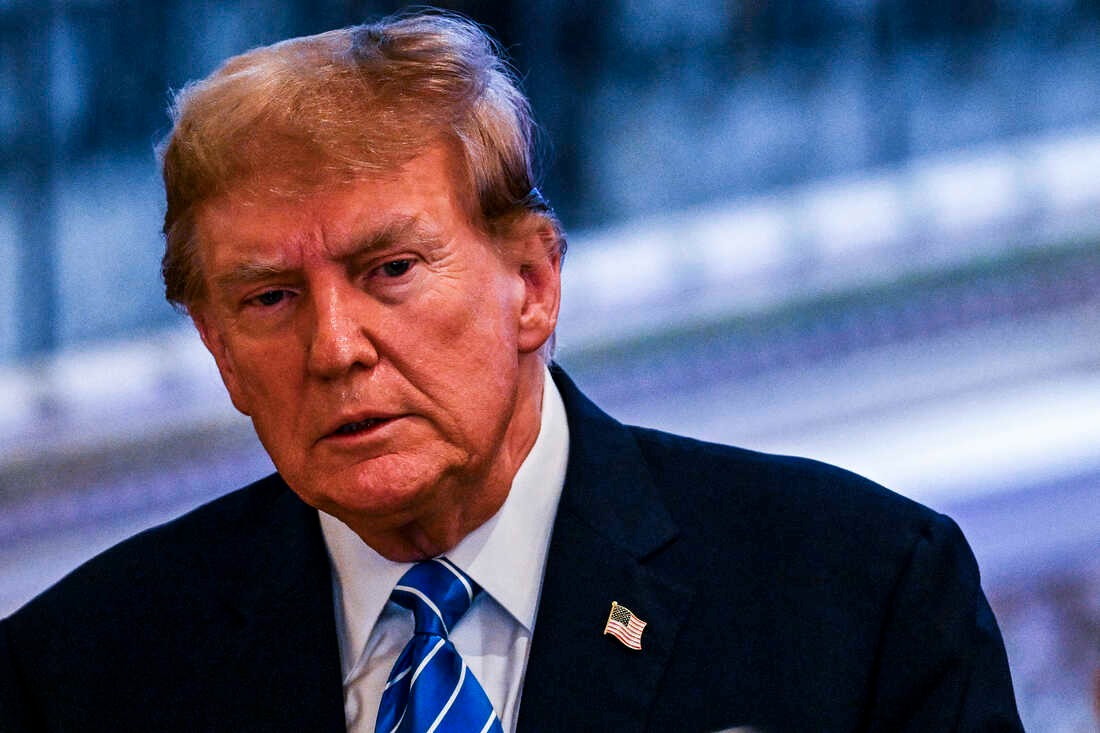Former President Donald Trump is making a serious legal push to have a New York appeals court overturn a gag order against him and to relocate his upcoming trial from Manhattan to a less politically charged venue. This move comes just one week before the trial is scheduled to start, highlighting a last-minute effort to delay proceedings.
Trump’s legal team has appealed to the state’s mid-level appeals court, requesting an emergency hearing which took place on Monday afternoon.
The specifics of Trump’s appeal involve challenging decisions made by Manhattan Judge Juan M. Merchan, including a recent expansion of a gag order that now prohibits Trump from making public comments about the judge’s family and the trial’s location in a Democrat-heavy Manhattan.

Donald J Trump (Credits: CNN)
These legal challenges were filed under seal, making the details not publicly accessible, but insights provided by sources familiar with the matter indicate a clear strategy by Trump to shift the trial’s venue and lift restrictions on his public commentary regarding the trial’s participants.
This Legal Tactic is a Component of Trump’s Attorneys’ Wider Range of Actions
These sealed documents articulate Trump’s disdain for the gag order and his desire to move the trial, with his team not officially commenting on the proceedings.
This legal maneuver is part of a broader set of actions by Trump’s attorneys who, in addition to seeking a venue change, have repeatedly requested delays to the trial start date, originally set for March 25. These requests argue for additional time to review new evidence stemming from a federal investigation into the same matters.
Despite these efforts, Judge Merchan has maintained that no further delays are justified, even after agreeing to postpone the original trial date due to the late emergence of this evidence.
Trump is facing 34 felony counts of falsifying business records related to payments made to his former lawyer, Michael Cohen. These payments were allegedly aimed at suppressing negative media coverage during Trump’s 2016 presidential campaign, including a payment to porn actress Stormy Daniels.
Trump has pleaded not guilty to these charges and denied any extramarital encounter with Daniels. His defense argues that the payments were legitimate legal expenses.
The controversy surrounding Judge Merchan includes Trump’s claims of bias and conflict of interest due to the judge’s daughter’s professional connections to prominent Democrats. These accusations have been a part of Trump’s ongoing critique of the judicial process in this case, which he argues is influenced by political bias and media coverage unfavorable to him.

Ex President Donald Trump (Credits: Nikkei Asia)
Trump’s suggestion to move the trial to Staten Island, where he received substantial electoral support in the past two presidential elections, underscores his strategy to seek a more favorable political environment for his trial.
This request aligns with his broader legal strategy across various cases, which appears to include seeking delays and questioning the impartiality of the judicial process.
This case marks the first of four criminal indictments against Trump slated for trial, representing an unprecedented legal challenge for a former U.S. president. As the legal proceedings advance, the interplay of legal strategies, political implications, and public commentary continues to shape a highly watched judicial narrative.























